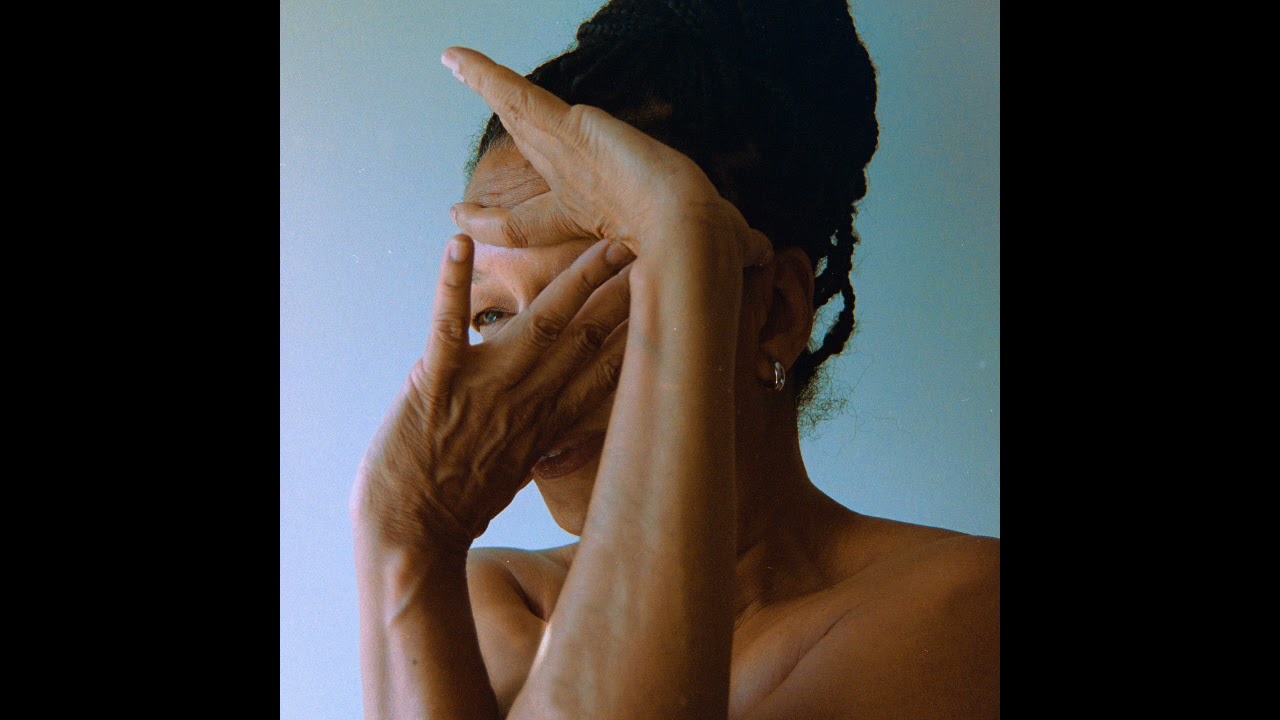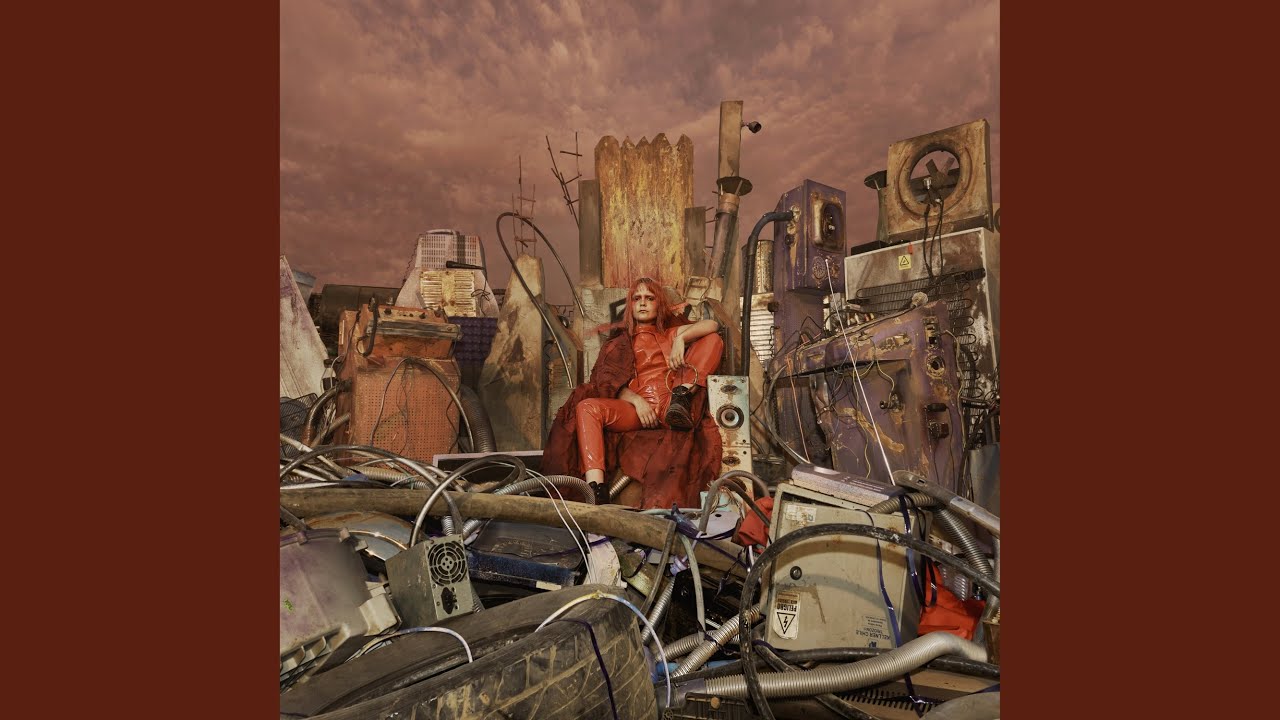Tati Zaqui from ‘Candy Crush’, dir: Guiller Valente
In August, 35 Korean music critics and industry professionals came together to vote on the Top 100 K-pop Songs of All Time. As with all major lists, it was mostly just fun to talk and think about. Something notable for me was that it signalled, in some sense, a narrowing of “K-pop” as something befitting an international fan’s understanding of the genre.
The list’s earliest entry is Seo Taiji’s ‘Nan Arayo’ (1992), a massively important song for understanding K-pop and the industry in general. While an expected starting point, it was upsetting to not see artists like the 80s mega star Kim Wan Sun — touted as the “Korean Madonna” — included. Also confounding was the absence of 90s acts like DJ Doc who, while undeniably popular and important, perhaps don’t slot as neatly into this evolving image of idol-centric K-pop.
Another major sticking point for me was the blurbs. In the most egregious instance, a critic called Brown Eyed Girls’ ‘Abracadabra’ the first deep house song in Korea. The song is decidedly not deep house — it can be described as electro pop in the vein of Shibuya-kei and electro clash, and isn’t far off from what producer Jinu aka Hitchhiker had produced prior to the single. But more than hand-wringing over genre distinctions (which is simultaneously extreme loser shit and undoubtedly important for historical reasons), it all reminded me of an oft-neglected truth: Access to music knowledge is far more difficult for those who don’t speak English.
Pop music writing is a Sisyphean task. There’s no way we can have accurate record-keeping of all music currently taking place, and less so from people with comprehensive knowledge of local and international musics to map everything out. Even more, there’s a consideration needed for what the critic finds interest in, and the sort of art that then gets propped up for audiences via distributors and publications. Maybe this is what makes music so enticing for me: There’s constant searching for a nebulous truth, of what actually defines music from a certain era or place, of what is really contributing to any song’s sound.
As I created the following list of ten songs — all released in August and September — I found both anxiety and solace in the task set before me. Anxiety because it feels so challenging to do “pop music writing” right, but solace in knowing that it’s perhaps inconceivable in the first place. Maybe there’ll be someone who reads my column and complains in the same way I did with the aforementioned K-pop list. And maybe that’s what this is all about: participating in an ongoing exchange of ideas about something impossible to fully comprehend. Here’s my round-up: a proverbial toss of my hat in the ring, just one small depiction of an inevitable Rashomon-esque story of pop music today.
Juçara Marçal – ‘Vi de Relance a Coroa’
(QTV)
One of the most foolish mistakes you can make as a music fan is to limit your musical diet to what garners the most discussion. I remember the excitement I felt when hearing MPB and Tropicália for the first time, transfixed by the experimentation and joy that defined much of the classics, but even more exciting was my deep dives into Brazil’s avant garde music during the 80s, and the various strains of pop that flourished in the 90s. Of course, music scenes don’t just stop evolving, and one would do well to scope out the works of Juçara Marçal, Kiko Dinucci, and Thiago França (who’ve made music together as Metá Metá), as they’re responsible for some of the best albums of the past few years that feel both indebted to the past and forward-looking. Delta Estácio Blues is a major LP, the most cohesive and fiery statement Marçal has made, building on the brooding, industrial impulses of Angana (2015) but ensuring there are enough hooks to go around. Many artists from the Vanguarda Paulista movement of the 1980s had music that felt like they were searching for some new sort of music, mixing Brazilian pop with new wave, jazz, and more. Marçal’s music is certainly part of that lineage, but there’s striking, invigorating confidence that oozes from every track’s flirtation with both genre and drama. Album opener ‘Vi de Relance a Coroa’ sets the stage: her voice soars above a dizzying concrète-lite arrangement of electric sparks and guitar, provided courtesy of Cadu Tenório and Dinucci. She sings of carnivals and fire burning in cane fields, and her command of the entire song makes everything feel like an enticing omen.
Mad Dogz ft. Tati Zaqui – ‘Candy Crush’
(Warner Music Brasil)
The latest in Warner Music Brasil’s Funk Total series, which brings together artists to create funk carioca, brega funk, and the like, is a delicious pairing between the masked production trio Mad Dogz and singer Tati Zaqui. ‘Candy Crush’ begins with stadium-ready horns and a trap beat as Zaqui declares that shaking her ass will hypnotise people. “Trick or treat”, she teases, but the mesmerism truly comes in the song’s beat switch. As rapid percussive strikes arrive, ‘Candy Crush’ eventually moves into a buoyant passage led by wiry guitar melodies. For a song that constantly asks about preferences — chocolate or raspberry, hot or cold syrup, “bolacha ou biscoito” — it understands that it can be everything for everyone, so it literally repeats both passages twice and calls it day: a quick double-dip scenario, where everyone can have their cake and eat it too.
Adriel Favela feat. El Bala – ‘El BO’
(Fonovisa)
Born in San Francisco and raised in both the US and Mexico, Adriel Favela has spent the past ten years creating unassailable norteño and corrido tracks. In August he signed with Fonovisa Records, and the first taste of his new music comes via ‘El BO’, a duet with the 19-year-old newcomer El Bala. It begins with steely guitar and a tough bassline before unknotting into a more spacious arena for spirited rhythmic play between every instrument, the accordion proving particularly versatile in projecting moods. It’s impassioned and fierce and nostalgic: the perfect compliment to the picturesque depictions Favela and El Bala provide of their come-up and locale.
Ariel Sheney ft. DJ Arafat – ‘Tala N’dilé’
(AS)
Coupé-décalé, a style of dance music that originated in Paris two decades ago and dominates Côte d’Ivoire today, is always at its best when its percussion causes an unstoppable urge to dance. Few pop music strains today are as tastefully kinetic, and Ariel Sheney’s ‘Tala N’dile’ is one of the year’s most satisfying offerings. It features the late DJ Arafat — one of the most crucial coupé-décalé artists ever, and a mentor to Sheney — and is the sort of track that could last for triple its length with ease. The secret is in the way all its individual components, from AutoTune-smeared vox to winding guitars, all work together to sustain a constant, uplifting energy. Listen to how the blipping synths repeatedly trail the vocal melodies to highlight the passion in every cry. It’s funny hearing these lyrics, which have an unsavoury tone regarding people’s need for repentance (at one point, women are scorned for undergoing plastic surgery), set to music so historically hedonistic. The irony is delicious: I’m not so sure mentioning the Ten Commandments in a song this lively will convince anyone to live more conservatively.
Liya ft. Davido – ‘Lakiriboto’
(DMW)
It’s impressive how consistent Davido’s DMW label has been since its creation in 2016. Liya’s a new signing, and ‘Lakiriboto’ finds the two duetting in a way that brings out the best in them both. The title is the Yoruba word for a woman who physically can’t be penetrated — in Ayodele Olofintuade’s 2019 book Lakiriboto Chronicles, it’s used as a metaphor for women who don’t kowtow to men and societal norms. Where 2020’s ‘Melo’ had Liya showcase how fluttery her vocals could be, ‘Lakiriboto’ aims for a nocturnal vibe, immediately signalled by the hazy, chopped-up vocals that open the song. They get interwoven with Liya’s own singing, which manoeuvres between the elegant and moody, but it’s Davido’s near-screaming in the bridge that revs up the intensity. “I no do kiss and tell” goes the chorus, and there’s a flirtatious slyness to it all that feels embedded in the repeated synth pulses: a constant teetering between close-held secrets and public desires.
Aymos ft. MaWhoo – ‘Olwangempela’
(self-released)
When I listen to South African artist Aymos’ ‘Olwangempela’, I’m reminded of how the human voice is the most riveting instrument of all. Aymos and MaWhoo’s voices could easily tower over the rest of the instrumentation due to their sheer beauty, but there’s a respect for the proceedings: they mirror the sax melodies before going off on their own, and build on the atmosphere set by the synths. There’s playfulness and comfort in every lilt and coo, and as they sing of true love, there’s rapturous delight in how they create a vortex of sweet melodies all around you. It’s not overwhelming to the senses, though. Instead, it’s gentle and inviting, like cuddling with someone after an exhausting day. Amapiano has been a source of the most comforting pop music this year, and ‘Olwangempela’ is the most effortless of them all.
STAYC – ‘Stereotype’
(High Up)
STAYC is a Korean girl group formed by Black Eyed Pilseung, a songwriting and production duo who have been instrumental in defining much of K-pop for the past decade. BEP have used the same general beat—a cross between freestyle and Miami bass (specifically, what appears in Ghost Town DJ’s ‘My Boo’)—for countless songs, and have gotten tons of mileage out of refracting it to suit the groups they work with. STAYC’s ‘Stereotype’ typifies this well: It’s not particularly different from many TWICE songs, but what sets its buoyant production apart is an introspective aura that rounds out the bubbling giddiness. The warm synth that arrives in the chorus —
topped off with triple-accent tambourine strikes — helps STAYC’s lyrics about self-love and anxiety feel heartfelt and soft. When they sing, “You should know/ I’m a good girl”, it’s not sly, suggestive, or some cutesy “I’m baby”-type mantra. It’s a moment of self-assurance that affirms they’re more than others’ assumptions. It’s a quiet declaration that they want to be, more than anything, understood.
WEAN – ‘MOT NGUOI VI EM (Fustic., Trung Bao, Namleday Remix)’
(HPM Collective)
It’s not uncommon for Vietnamese artists to release remixes of songs, but it is rare to hear one that builds upon the original in any meaningful way. WEAN initially released ‘MOT NGUOI VI EM’ last year and it was a perfectly fine R&B track. Here, it’s given a remix that’s far more attuned to the song’s lyrics about being madly in love with someone. Flagellating synths collide with each other to signify this unbridled state of crushing, which in turn makes the reserved passages feel tender in their plainspoken serenading. The artists credited here for the remix — Fustic., Trung Bao, and Namleday — have mostly focused on vinahouse (a simple, excessive, and hard-hitting form of EDM in Vietnam), so the thoughtfulness of the production here is a welcome surprise. It’s this mixture of restraint and precise arranging that keeps me convinced. I feel like someone warming up to a friend who’s had an open, longterm crush on me. “I know you love it”, sings WEAN, slightly out of key. After a year, I’m ready to admit he’s right.
9am6master – ‘核聚变 nuclear’
(self-released)
IntoDust_Asian_Club’s YouTube channel highlights musicians from the Chinese underground. While it’s still a little-known venture (many vids don’t even crack triple digits), there’s something exciting about all these no-budget music videos and the various strains of rap (Drain Gang, boom bap, contemporary ATL) the artists take on. There have been songs that could fit neatly into low-stakes, internet-genre-focused SoundCloud playlists, but 9am6master’s ‘核聚变 nuclear’ is the only real-deal hyperpop song uploaded thus far. The hallmarks are familiar: the buzzing synths, the ricocheting energy, the gnarly teenage angst. Originally released as part of 9am6master’s 96 dream 2 back in May, ‘核聚变 nuclear’ is the only track on the album that eschews the producer’s chipper tendencies for something more multi-dimensional. “Fuck you, I don’t even need you!” is snarled in the chorus with so much energy that it cuts through all the rainbow-coloured synths, making the production feeling uplifting. The groove that the song ends in is a self-satisfied victory lap.
Camila Moreno – ‘Rey’
(self-released)
“Eroticism, sexuality, revolution and love are things that cannot be separated. You can’t have a revolution if you don’t dance, if there isn’t joy.” Chilean artist Camila Moreno explained this in an interview regarding her latest album Rey, which is inspired by Gabriela Mistral’s poetry and Donna Haraway’s A Cyborg Manifesto. Since her previous studio album, Moreno’s had some major life changes: she’s had a child, divorced her husband, started dating a woman, and now identifies as pansexual. While she’s spent the last two years releasing a slew of singles—including the Radiohead-esque ‘Hombre’ and the shapeshifting anti-patriarchy anthem ‘Quememos el Reino’ — the album’s conceptual underpinnings are only realised in a full-album experience, interludes and all. The title track is the best of the album’s non-singles, and while comparatively straightforward, it captures the album’s romantic spirit in both the stripped-down and energised passages. When she declares, “I want to be your king”, it feels as momentous as the circuitous path that leads to it. That’s the key to Rey: it makes every moment count, because each one feels crucial to this overarching journey of self-discovery.












